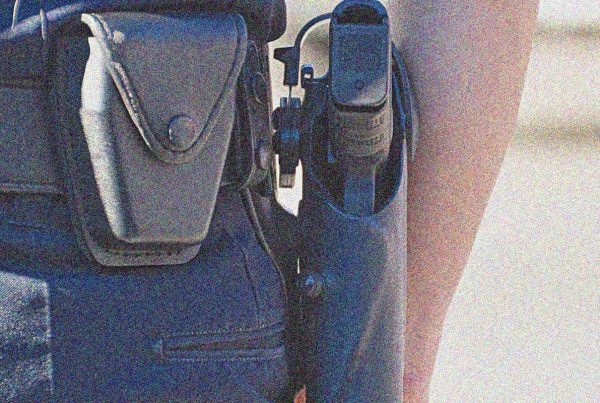An unexpected knock on the door during Thanksgiving dinner is rarely good news – but it takes on a whole new dimension when the uninvited guest is the police.
The Quebec government has put the police on the frontlines of the pandemic and placed a new tool in their COVID enforcement arsenal – general telewarrants. Premier Legault has said they can be used by police to gain quick entry to people’s homes. If used pursuant to Quebec law, however, they should actually give police a very limited ability to get past your front door.
The government is playing with fire. The potential for abuse – unconstitutional searches and arbitrary detention – is immense. And the constitutional backstop is a judge on the other end of a phone line. We better hope they do their jobs.
Let’s set the record straight about what police can and can’t do during your Thanksgiving meal this weekend.
Your home is precisely that – your home. Whether you own or rent, you have special rights when it comes to your residence. Police officers who want to investigate possible violations of COVID-related laws can’t come in just because they want to. They can only get past your front door if they have your consent, or they’ve obtained a judicially authorized warrant.
The police cannot simply demand that you indentify yourself to find out where you live. You have the right to remain silent. Police can’t legally compel you to hand you’re your ID as part of their investigation. Although, if the police do decide there are reasonable grounds to ticket you for an offence they can arrest and detain you until they are sure of who you are.
So where do telewarrants fit?
Let’s say the police knock on your door, and you decide that you don’t have enough turkey to go around. You don’t want to open the door, much less talk to them or invite them in.
The police now need a warrant, or a telewarrant, to enter without your consent. They will have to appear before a court, or get on the phone with a judge, to obtain a warrant, based on the evidence they have, which has to show reasonable and probable grounds to believe that an offence is being committed, and that conducting an investigation inside the home will furnish more evidence.
There may be cases where that evidence is clear from the outside of the house: 100 pairs of shoes at the door; crowd noises heard from over the fence; a neighbor who says they saw dozens enter the home. But there does need to be evidence: the police can’t legally get a warrant to enter your home and investigate just based on suspicion or a hunch that the new rules have been broken.
The new rules contain strict limits with many, many exceptions. No indoor gatherings in the red zones. But you can gather with members of your own household – roommates, cousins, extended families. Live alone? You can invite one person over. You can also let people into your house if they are providing or receiving a “service or support” required for health, safety or respite. Or personal care or esthetics. Oh and domestic help. Also pedagogy or education.
That’s a long list of permitted gatherings. Police will have a hard time figuring out when these exceptions come into play- especially tricky without x-ray vision. That’s why, if these warrants are used according to the letter of the law, there should be few instances where the police have enough solid information to convince a judge to approve them.
But that it were so simple. Just ask the most frequent targets of police suspicion — including Black, Indigenous and other racialized Quebeckers, those living on the streets or otherwise with addiction and mental illness. Requests to enter a house sound like demands and police justifications for investigations shift. An insistence on your constitutional rights may be met with charges that you are being ‘uncooperative’ or ‘disrespectful’. Situations escalate. People get hurt.
Those who already over-policed and subjected to harassment know all too well what increased police powers mean.
Even if they are able to obtain a warrant to enter inside your home, and actually get inside your home, it is difficult to see how the police will be able to investigate without getting people to hand over their ID. Maybe the police will already know who lives there, or maybe some will decide to cooperate. Throughout any investigation, though, individuals have the right to remain silent. And they can refuse to identify themselves, unless the police have confirmed they are issuing a ticket. The line between asking for identification for the purpose of issuing a ticket, however, and asking for identification to investigate the commission of an offence, is a very thin one.
Ultimately, the use or abuse of this particular policing tool – the telewarrant – will lie primarily in the hands of the judiciary – an awesome responsibility, to prevent COVID fears from infecting the rule of law and constitutional rights created precisely for this moment in time.
En français: Devinez qui vient souper pour l’Action de grâce?
Abby Deshman is the Director of Criminal Justice at the Canadian Civil Liberties Association.
Lida Sara Nouraie is a criminal defence counsel and the President of the Montreal Criminal Defence Lawyers Association
About the Canadian Civil Liberties Association
The CCLA is an independent, non-profit organization with supporters from across the country. Founded in 1964, the CCLA is a national human rights organization committed to defending the rights, dignity, safety, and freedoms of all people in Canada.
For the Media
For further comments, please contact us at media@ccla.org.





